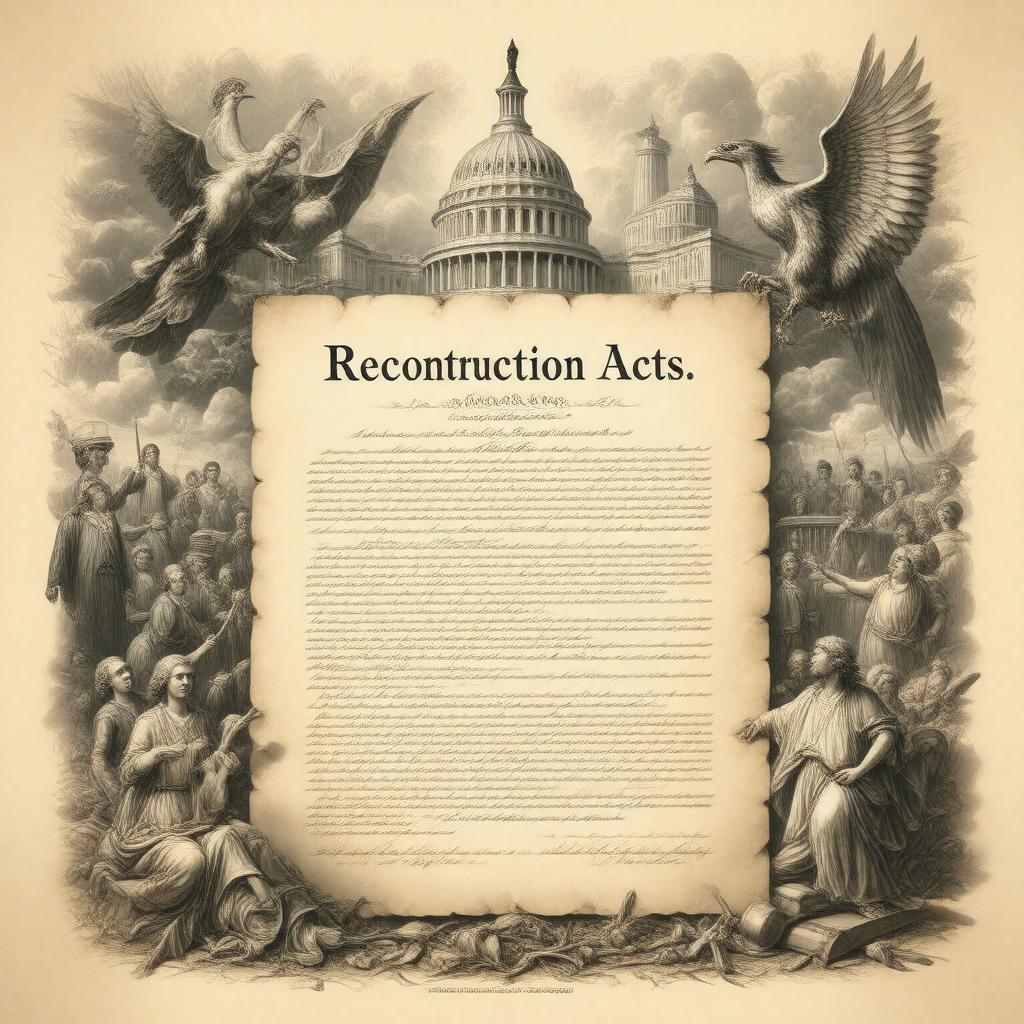Prompt
"Create an image of a historic document, specifically a law, with the title 'Reconstruction Acts' prominently displayed. The document should be illustrated in a formal, 19th-century style, with intricate details and classic typography. In the background, a subtle image of the United States Capitol Building or a similar representation of American government can be seen. The document should be surrounded by symbols or images representing the Reconstruction Era, such as broken shackles, scales of justice, or a rising phoenix. The color palette should be muted, with shades of brown, beige, and blue, evoking a sense of nostalgia and historical significance."

